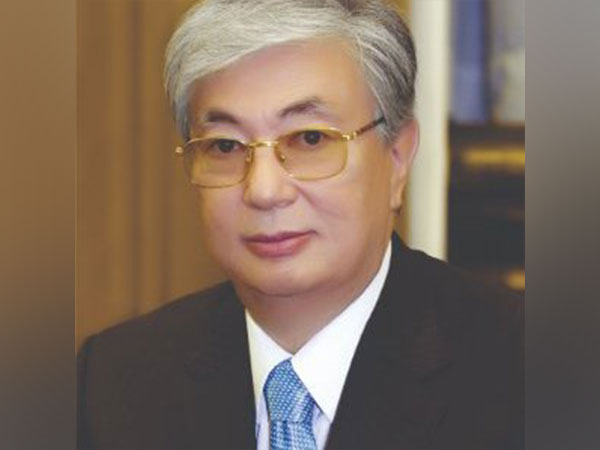Kazakhstan President Tokayev Outlines Vision for Sustainable Progress
In his annual address, President Kassym-Jomart Tokayev of Kazakhstan emphasized sustainable socio-economic growth, announcing a referendum on a nuclear power plant and legislative milestones. Focus areas include infrastructure, fiscal policy reforms, industrial development, digitalization, and enhanced public welfare.

- Country:
- Kazakhstan
During an annual address, Kazakhstan President Kassym-Jomart Tokayev focused on sustainable socio-economic growth and a brighter future, highlighting the nation's key objectives and prioritizing balanced socio-economic development. Notably, President Tokayev presented his annual state-of-the-nation address on September 2, titled 'Just Kazakhstan: Law and Order, Economic Growth, Public Optimism.' His speech outlined key goals for the nation's progress.
A significant announcement was a nationwide referendum slated for October 6 on constructing a nuclear power plant. 'The upcoming referendum will symbolize a broad national dialogue and showcase the concept of a 'listening state,' forming a new socio-political culture and establishing new standards for key state decisions,' President Tokayev stated, according to a Kazakhstan Embassy press release.
Tokayev also highlighted recent legislative accomplishments, such as the passage of 102 laws addressing issues like human trafficking and child protection. New laws have been introduced to strengthen penalties for violence against women and children. The President emphasized the need to resolve monetary and fiscal policy imbalances through tax reforms and enhancing the investment climate. He called for a new banking law to stimulate economic activity and further develop the fintech sector. Tokayev stressed the importance of a stable, business-friendly tax policy, advocating for transitioning tax processes to an electronic format to reduce corruption and enhance transparency. He set a target to increase medium-sized businesses' share in the economy from 7% to 15% by 2029.
Additionally, Tokayev highlighted the development of Kazakhstan's industrial potential, particularly in the petrochemical industry and gas supply. Infrastructure development, especially in the energy and transport sectors, was identified as a key priority. 'Kazakhstan's central location in Eurasia is a competitive advantage. Investments in transport infrastructure will yield significant returns,' he emphasized. He also stressed the importance of modernizing energy and utility sectors, improving highways, and developing air hubs. Digitalization was another central theme, with plans to integrate AI into the e-government platform and establish a National AI Centre in Astana next year. The completion of the Caspian Sea fiber-optic line by 2025 was also highlighted.
Reaffirming Kazakhstan's commitment to law and order, Tokayev stated, 'One of my main tasks is to make Kazakhstan a place where life is comfortable and safe.' Addressing political reforms, he noted profound socio-economic transformations and comprehensive human rights measures aimed at building a just society. He announced the full implementation of direct elections for village, district, and city akims (local governors) by next year. Tokayev also prioritized workforce strengthening, developing a unified state healthcare service package, and improving the environmental situation, including a nationwide reforestation movement. 'Forest regeneration is crucial for ecological balance and sustainable socio-economic progress,' he stated.
In foreign policy, President Tokayev reaffirmed Kazakhstan's commitment to a peaceful, balanced approach, emphasizing the nation's dedication to broad multilateral cooperation in accordance with the UN Charter. Concluding his address, Tokayev stressed the primary task of genuinely improving people's well-being. 'We have a clear vision for our state's long-term development. To achieve our goals, we must uphold unity, mutual support, and respect,' he stated.
(With inputs from agencies.)
ALSO READ
How Digitalization Enhances Entrepreneurship’s Role in Africa’s Development Goals
IATA Calls for Stronger Collaboration, Digitalization, and SAF Support to Fortify Global Air Cargo
SDGs at risk without fair governance in Industry 4.0 tourism digitalization
Air Cargo Vital to Global Supply Chains: IATA Calls for Action on Safety, Security, Digitalization & Sustainability










